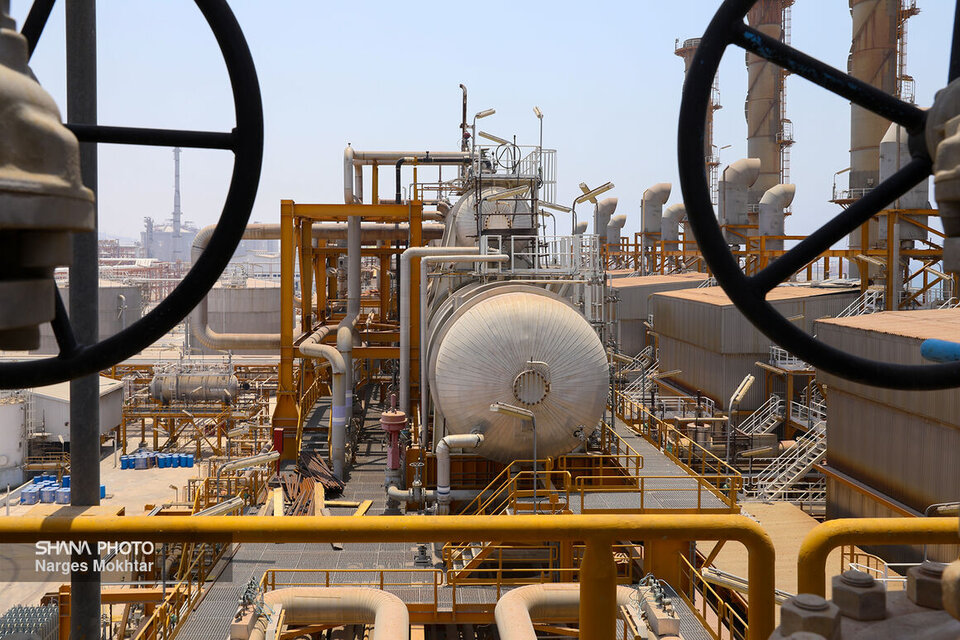Mohammad-Sadeq Azimifar expressed hope that interagency cooperation would help effectively address the energy imbalance.
According to the NIORDC, Azimifar spoke Saturday at the signing ceremony of an agreement on the production and supply of biofuel-based gasoline between the company and Iran's Industrial Development and Renovation Organization (IDRO). He stated, "Following the official inauguration of the Zagros Green Fuel Plant during the president's provincial visit to Kermanshah, we are starting ethanol-based fuel distribution today."
Azimifar noted that Iran has faced fuel imbalances for several years due to various factors, and resolving the issue requires cross-sector collaboration. "In fuel production, the cooperation of the Ministry of Industry, Mine and Trade and the use of industries for ethanol-based fuel production are highly effective. On the consumption side, synergies in scrapping outdated fleets, modernizing them and optimizing fuel-saving capacities provide a strong foundation for reducing imbalances," he said.
The deputy oil minister for refining and distribution emphasized that agreements are being made in both production and consumption, with significant opportunities for collaboration. "On the consumption side, substantial capacities have been established under the Economic Council’s resolutions but remain underutilized. These can soon be activated through defined projects with clear frameworks and stakeholder participation," he added.
Azimifar highlighted that the first step was taken at the Oil Exhibition with the signing of an MoU to modernize 20,000 electric motorcycles in the presence of stakeholders. "Electrification and fleet scrapping are top priorities, and modernizing freight and passenger fleets will also be pursued in cooperation with relevant agencies," he said.
He expressed optimism that past obstacles, including interagency coordination issues and lack of investment repayment guarantees, have been resolved. "We hope that through determination and synergy among agencies, we can take effective steps to address the imbalance. I thank IDRO and all partners for their cooperation and hope this collaboration plays a key role in reducing imbalances and benefiting the nation," he said.
Launching bioethanol production at full capacity
Farshad Moqimi, deputy industry minister and head of IDRO, stated at the ceremony, "We have taken effective measures to manage consumption in factories and transportation fleets—land, maritime and rail—along with industrial restructuring for optimized consumption and adopting new technologies in plants."
He noted that 350,000 vehicles were scrapped last year, with over 33,000 this year—a 22% increase—demonstrating a commitment to fleet consumption reform. "Additionally, an MoU was signed last year for electric taxis, with 500 registered and 300 soon to be delivered," he added.
Moqimi said 70,000 motorcycles are slated for modernization, with 20,000 covered under an MoU, and discussions are ongoing to finalize models for truck modernization.
He confirmed that the bioethanol plant in Kermanshah, inaugurated during the president’s visit, is now operating at full capacity. "We hope to facilitate nationwide bioethanol production expansion soon and will support sustainable producers under this agreement, aiming to remain a strategic partner to the National Oil Refining and Distribution Company," he said.
Abadan Refinery leads in MTBE phaseout
Fardin Rasheedi, CEO of Abadan Refinery, stated, "We are proud to pioneer the replacement of MTBE with bioethanol. Our first order, totaling 9,500 tons, has been placed, and we hope to revitalize Abadan’s industrial zone."
He emphasized the refinery’s strong commitment and said, "We aim to introduce the environmental benefits of this new product through necessary mechanisms at fuel stations."


Your Comment